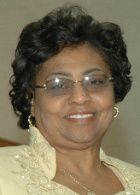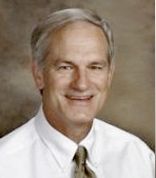Here we have the presentment of two job losses:
 |
 |
Shirley Sherrod gives a speech; within the speech she indulges in a bit of roundaboutation, saying some things that seemed offensive, until the larger context was understood.
Because the embrasure of “politically correct speech” has encouraged reactionary hyper-vigilance as to words, sentences or modes of reasoning that might steer too close to the movable line known as “hate,” Sherrod’s edited remarks were immediately received as such and she was quickly denounced by the very NAACP that had access to her full remarks–and should have known better–and then fired from her job.
Context, when finally absorbed, exonerated Ms. Sherrod from the charge of “hate speech,” and even though–because perfect communication is a rare thing–her speech did contain a few wince-inducing lines, (“well, it is about white and black, but…”) the general sense is that if Sherrod wants her job back, she should have it. The offer for reinstatement has been rightly made.
But the destructive rush-to-judgment says a great deal about a society perhaps too-fully enthralled to the victim’s mantel, too-ready to play Red-Queen-Off-With-A-Head without bothering to listen, or to get a complete story, or to thoughtfully digest it.
Two weeks before Sherrod’s dramatic 15 minutes came and went, University of Illinois Professor Kenneth J. Howell, who is employed by that institution’s Department of Religion to teach Catholicism, Catholic theology, Catholic thought and reason, was summarily fired for, basically, trying to help his students understand a point regarding Utilitarianism and Sexuality, before their final exam.
So, fundamentally, he was attempting to serve his students, for the benefit of their own understanding and the sake of their grades. He did this by emailing a clarification of his lecture points to his students.
The email was long; it demanded a full reading to be understood in context. Without context, Howell, like Sherrod, was bound to be misunderstood, and charged–with full finger-in-face righteousness–with the amorphous crime of “hating.”
As with Sherrod’s speech, where we acknowledged that imperfect communication is not necessarily “hateful,” Howell dared to traipse a very thin line. If Sherrod could say, “well, it is about white and black, but…” and then go on to make her acceptable larger point, then Howell’s writing, “Men and women are not interchangeable. So, a moral sexual act has to be between persons that are fitted for that act. Consent is important but there is more than consent needed…” should be weighed against:
. . . a survey of the last few centuries reveals that we have gradually been separating our sexual natures (reality) from our moral decisions . . .
If what I just said is true, then this disassociation of morality and sexual reality did not begin with homosexuality. It began long ago. But it took a huge leap forward in the wide spread use of artificial contraceptives. What this use allowed was for people to disassociate procreation and children from sexual activity. So, for people who have grown up only in a time when there is no inherent connection between procreation and sex –- notice not natural but manipulated by humans –- it follows “logically” that sex can mean anything we want it to mean.
Natural Moral Theory says that if we are to have healthy sexual lives, we must return to a connection between procreation and sex. Why? Because that is what is REAL. It is based on human sexual anatomy and physiology. Human sexuality is inherently unitive and procreative. If we encourage sexual relations that violate this basic meaning, we will end up denying something essential about our humanity, about our feminine and masculine nature.
I know this doesn’t answer all the questions in many of your minds. All I ask as your teacher is that you approach these questions as a thinking adult. That implies questioning what you have heard around you. Unless you have done extensive research into homosexuality and are cognizant of the history of moral thought, you are not ready to make judgments about moral truth in this matter. All I encourage is to make informed decisions. As a final note, a perceptive reader will have noticed that none of what I have said here or in class depends upon religion. Catholics don’t arrive at their moral conclusions based on their religion. They do so based on a thorough understanding of natural reality.
Emphasis mine. What we see, after all the high-drama of Howell’s daring to speak an eternal thought that is at odds with current thinking, is an intellectual doing what intellectuals do: admitting that he is not “answering all the questions in many of your minds,” while puzzling over an issue, trying to pierce the veneers of moral thought, social codes and natural reasoning, to find the core piece of human understanding that is, in fact, so distant: what our humanity means in relation to creation and God.
We see a courteous teacher with critical thinking skills and a mind trained to question and probe, trying to impart those skills onto students who have been taught that “sensitivity” trumps courtesy; they have been trained not to think, but to herd, not to probe, but to fall in line.
It was inevitable, then, that Howell would be called out for his crime, and not by one of Howell’s own students, but by an un-named “friend” writing on behalf of a student who, we are told, had been offended by Howell’s semester-long insistence on teaching–to students enrolled in a class entitled “Introduction to Catholicism and Modern Catholic Thought“–a Catholic understanding regarding such things as utilitarianism, sexuality and the church’s natural moral theories.
Wrote the non-student complainant:
Teaching a student about the tenets of a religion is one thing. Declaring that homosexual acts violate the natural laws of man is another. The courses at this institution should be geared to contribute to the public discourse and promote independent thought; not limit one’s worldview and ostracize people of a certain sexual orientation.
. . . Also, my friend also told me that the teacher allowed little room for any opposition to Catholic dogma. Once again, he is guilty of limiting the marketplace of ideas and acting out of accord with this institution’s mission and principles.
Critical-thinking skills are nowhere in evidence, here. Nor is an appreciation for mere irony. The writer calls for the promotion of independent thought and a limitless worldview by damning a professor for theorizing in opposition to the student’s worldview. A course designed to familiarize a student with Catholic thought is thought divisive for attempting to remain focused on same. The “marketplace of ideas,” has no room for ideas that do not conform.
I think in some ways, the Howell situation is more urgently troubling than Sherrod’s. Sherrod’s story illustrated to us that writers, editors, broadcasters, activists, bureaucrats and the White House are running on mere reflexiveness against perceived political black-eyes and feather-caps, with accompanying “collateral damage,” and that cynical opportunism is self-defeating.
That is a grim enough message, in such serious times.
The Howell story, however, goes beyond grim: it tells us that a simple charge of thinking incorrect thoughts and encouraging others to also dare to think, even if one comes to a different conclusion (“All I ask as your teacher is that you approach these questions as a thinking adult . . .All I encourage is to make informed decisions…”) is enough to destroy a career and assign a corrosive label, at whim.
Such actions do not encourage future development of critical thinking skills; they encourage a clamping down, not an opening, of the human mind.
Shirley Sherrod did not deserve to lose her job, not seen in context. In context, nor does Professor Ken Howell. Both of them, ultimately, were urging their audiences to move beyond comfort zones, assumptions and a perceived conventional wisdom – to entertain a broader range of thought, and see where it leads.
That used to be considered a good thing, even a liberal thing.
The future is in the playpen. The playpen is not being taught how to reason or debate; it is being encouraged not to reason, but simply to feel, not to debate, but to fall in line.
I begin to wonder if a project such as this comes too late.
UPDATE:
Via Hot Air, More Campus Clampdowning:
It sounds to me like the ACA wants a “don’t ask, don’t tell” rule for religion. That runs square into the First Amendment, especially for a state-run school. The ACA’s idea of who comes first doesn’t get to trump the restriction on freedom of religious exercise. If clients get off-put by Keeton’s approach to counseling, they can look for another counselor. Now, the ACA can decide not to certify her; as a private organization, they have that prerogative. If they do that explicitly based on her religious belief, however, they may have a problem with that in court, especially as it will block Keeton’s ability to make a living.
I guess my question is, if a gay counseling student expressed an inability to “embrace” religious people or their values, would he/she also be subject to remediation? Are we drowning in irony, here?
Read also:
Brutally Honest
Deacon Greg Kandra
Victor Davis Hanson: Net Negative
Jon Stewart: on Sherrod and Breitbart
Gay Patriot: Free speech aside, are the Sherrods race baiters?
NewsBusters: A valid question from Jake Tapper











